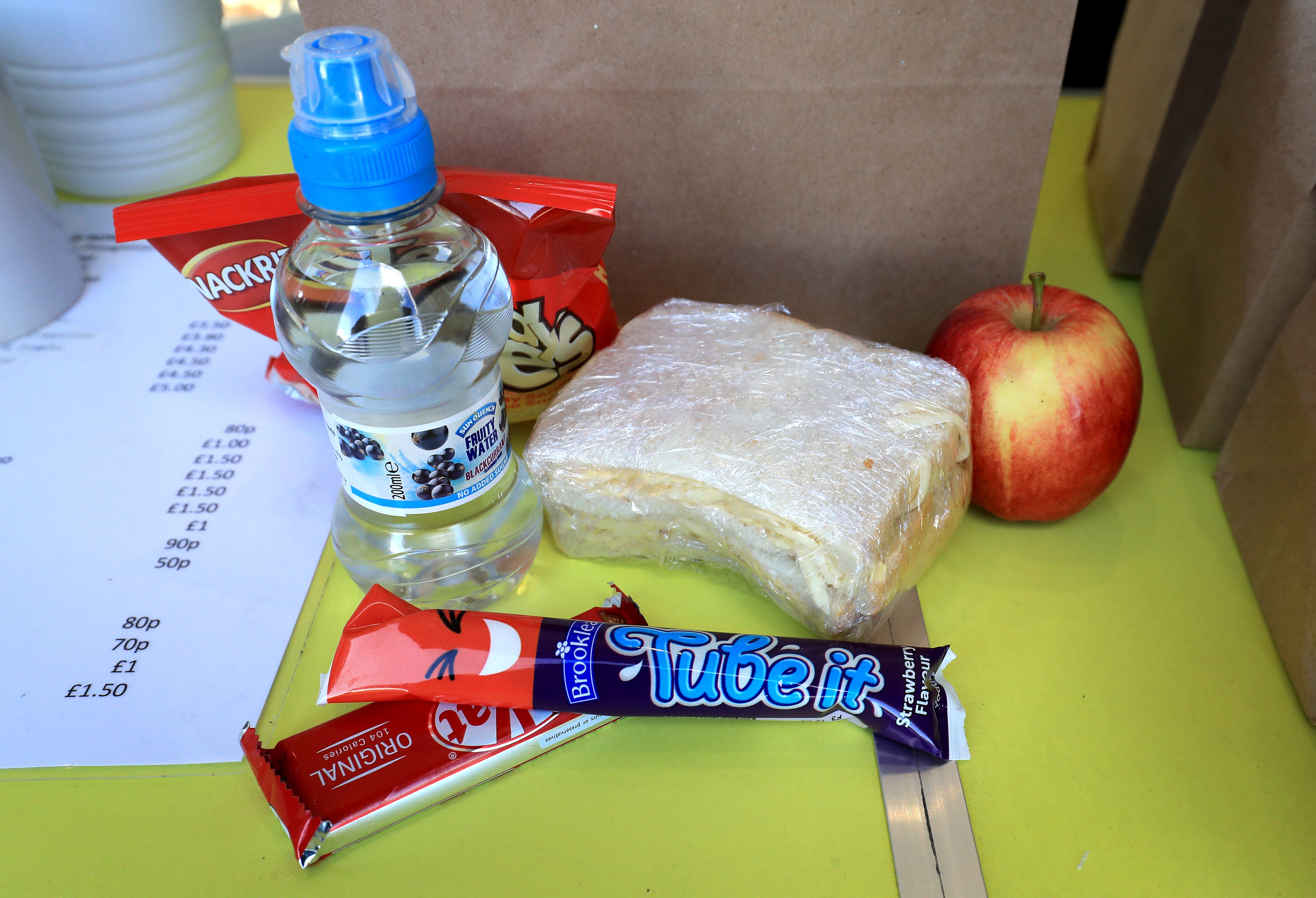
The number of children eligible for free school meals has soared in England to nearly 2 million, according to official government statistics.
Nearly 23 per cent of pupils now qualify - up from 20.8 per cent the year before - as the country grapples with a cost-of-living crisis.
The free school meals scheme is available to the most disadvantaged pupils in the UK from low-income families.
But charities warn it does not cover all children in poverty, estimating one third – or 800,000 – do not qualify at all.
Former education secretaries and unions have called for the free school meal eligibility criteria to be expanded to all children whose families receive universal credit, with those on incomes over £7,400 a year currently ruled out.
The latest Department for Education statistics offer some insight into the level of disadvantage in England’s schools.
It shows 1.9 million pupils – or 22.5 per cent – were eligible for free school meals in January this year.
This was a rise of around 160,000 from the year before, when 1.74 million – or 20.8 per cent of the student population – qualified.
Julie McCulloch, from the Association of School and College Leaders, said: “It is shocking that in one of the world’s wealthiest economies we are seeing a very significant increase in the number of children eligible for free school meals, and therefore living in extremely difficult financial circumstances.”
She added: “Even more shocking is the fact that current eligibility does not even capture all the children who need help.
“Free school meal eligibility now applies to 22.5 per cent of pupils, but we know that the level of child poverty is about 30 per cent.”
Her union is among those who have written to the chancellor pushing for free school meals to be extended to all families on universal credit.

Paul Whiteman from the NAHT union is calling for the same. Speaking about the latest figures, he said: “It is clear that the combined pressures of Covid-19 and the cost-of-living crisis have driven more families and children into poverty.”
The government said the percentage of children on free schoool meals was already increasing before the pandemic, with the jump when Covid hit the largest seen in years. The increase this year is in line with those seen pre-pandemic.
All regions in England recorded a rise this year. The largest increase in numbers eligible for free school meals was seen in London and the West Midlands, where the figure is now 2 percentage points higher.
The largest proportion of eligible children is in the North East with 29.1 per cent, followed by the West Midlands with 26.5 per cent.
“The children who have newly become eligible for free school meals are disproportionately drawn from more disadvantaged areas and are largely those pupils who already needed more support,” Mr Whiteman said.
“Free school meals eligibility should be extended to every child from a family in receipt of universal credit, with auto-enrolment.
“These children are already the victims of a decade of austerity and the government urgently needs to act to avoid these children becoming an entirely lost generation.”
Child Poverty Action Group estimated many children were not eligible for free school meals despite being in poverty due to the £7,400 a year income threshold for those on universal credit, no matter the size of the family.
It estimates one in three children in poverty – or 800,000 – are shut off from means-tested free school meals.
Kate Anstey from the charity said: “We know families are being left to make impossible decisions, with many parents simply unable to afford lunches but desperately not wanting their children to go without.
“Food is vital to children’s health, wellbeing and learning.”
Disadvantaged pupils have long faced an attainment gap with their better-off peers - which has been threatened further by inequalities exacerbated by the Covid pandemic.
“The government cannot continue to stand by while children in poverty go hungry at lunchtime,” Ms Anstey said as she called for universal free school meals.
A government spokesperson said: “We know millions of families are struggling with the rising cost of living, which is why we are providing over £37bn to target those with the greatest need.
“Our National School Breakfast Programme and the Holiday Activities and Food programme are also benefitting children across the country.”







